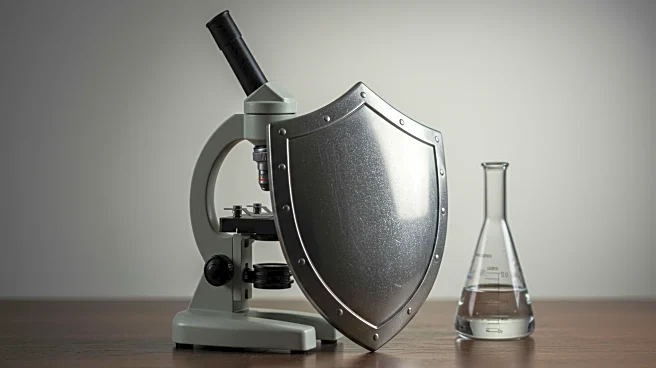What is the story about?
What's Happening?
Dr. Susan Monarez has been confirmed as the Director of the U.S. Centers for Disease Control and Prevention (CDC) following a Senate vote of 52-47. Monarez, a microbiologist and infectious disease expert, previously served as the CDC's deputy director. Her confirmation comes after President Trump withdrew his initial nominee, former Florida Rep. Dave Weldon, due to concerns over Weldon's vaccine skepticism. This marks the first time the CDC director position has required Senate confirmation. Monarez's appointment is seen as crucial for leading the CDC's efforts in disease prevention and response to health threats, both domestically and globally. During her confirmation hearing, Monarez distanced herself from certain Trump administration directives, including mass layoffs at the CDC and proposals to eliminate programs. Her stance on vaccination and public health programs has been a focal point of her confirmation process.
Why It's Important?
The confirmation of Dr. Susan Monarez as CDC Director is significant for the U.S. public health landscape, especially amid ongoing debates about vaccine safety and public health policy. Her leadership is expected to influence the CDC's approach to handling health threats and advancing public health initiatives. Monarez's appointment comes at a time when the CDC faces challenges related to budget cuts and personnel changes under the Trump administration. Her ability to navigate these challenges and advocate for the CDC's mission is crucial for maintaining the integrity of the U.S. public health system. The confirmation also highlights the political dynamics surrounding public health leadership and the importance of scientific integrity in policy-making.
What's Next?
Dr. Monarez is expected to focus on strengthening the CDC's resources and capabilities to address health threats, including pandemics and chronic diseases. Her leadership will likely involve advocating for the CDC's budget and personnel needs, as well as ensuring the agency's scientific advisory committees operate independently. The confirmation may lead to further discussions on the role of science in public health policy and the CDC's ability to respond effectively to health crises. Stakeholders, including public health experts and policymakers, will be closely monitoring Monarez's actions and decisions as she takes on this critical role.
Beyond the Headlines
The appointment of Dr. Monarez may have broader implications for the relationship between science and politics in public health. Her leadership could influence how scientific evidence is integrated into policy decisions, particularly in areas like vaccination and health equity. The confirmation process itself underscores the growing importance of Senate oversight in public health appointments, reflecting a shift towards greater accountability and transparency in health leadership.
















